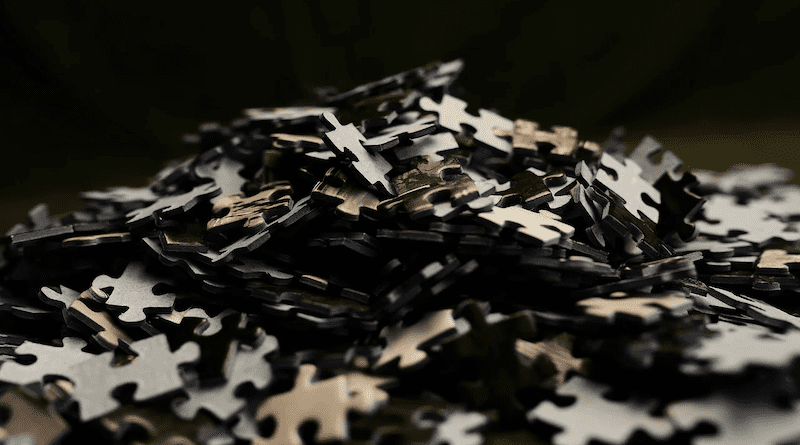Patience Is Good For Everyone – OpEd
Patience is the ability to remain calm and composed in the face of difficulty, adversity, or delay without becoming anxious, frustrated, or angry. It is the quality of being able to tolerate delay or hardship without becoming irritated or upset.
Patience is an essential trait to have in life, and it can help us in various ways:
a. Improved decision-making: When we have patience, we take the time to evaluate the situation thoroughly, consider all options and make informed decisions.
b. Better relationships: Patience helps us understand and communicate better with others, thus improving our relationships.
c. Reduced stress: Being patient helps reduce stress and anxiety as we learn to cope with the challenges that come our way.
d. Increased resilience: Patience builds resilience and helps us persevere through difficult times.
e. To develop patience, it is important to cultivate self-awareness, practice mindfulness, and learn to manage our emotions effectively.
We can also work on developing realistic expectations, being more flexible, and staying focused on our goals. Thus, patience is an essential life skill that can help us navigate the challenges of life and lead a more fulfilling and satisfying life.
Global status
It is difficult to assess the global status of patience as it is a subjective trait that varies across cultures, individuals, and contexts. Studies done so far have shown that patience is generally viewed as a desirable trait across cultures and is associated with better mental and physical health outcomes.
In some cultures, such as Japan and China, patience is highly valued and seen as a key virtue. The Japanese term “gaman” refers to the idea of enduring pain or hardship with patience and dignity, while the Chinese concept of “ren” includes the idea of patience and endurance. In Western cultures too, patience is less emphasized than in some Eastern cultures, but it is still seen as an important trait.
Further research on it has shown that patience is associated with better academic performance, more satisfying relationships, and better physical health outcomes. Specially, in today’s fast-paced and instant-gratification society, maintaining patience are becoming more challenging for some individuals. The prevalence of technology and social media has led to a culture of immediacy and a decreased tolerance for delay or inconvenience. Despite differences across cultures and individuals, patience is generally seen as a desirable trait with numerous benefits for personal and societal well-being.
Benefits of patience
Handle and deal anything and individual in life has a number of benefits which include:
a. Reduced stress and anxiety: Patience can help individuals stay calm and composed in stressful situations, reducing feelings of stress and anxiety.
b. Improved decision-making: When individuals have patience, they are more likely to make thoughtful, well-informed decisions rather than impulsive ones.
c. Better relationships: Patience can help individuals better understand and communicate with others, leading to more satisfying and fulfilling relationships.
d. Increased resilience: Patience can help individuals persevere through difficult times, bouncing back from setbacks and challenges.
e. Greater self-control: Patience requires self-control and discipline, which can help individuals develop greater self-control in other areas of their lives.
f. Improved health outcomes: Research has shown that practicing patience is associated with improved mental and physical health outcomes, including lower blood pressure, improved immune function, and lower levels of stress hormones.
g. Increased success and achievement: Patience can help individuals stay focused on their goals, persisting through obstacles and setbacks to achieve success.
Significance of patience in life
In common man’s life, patience can help individuals communicate more effectively, resolve conflicts more successfully, and build stronger, more meaningful relationships with others. It enhances creativity and allow individuals to explore ideas and options more fully, leading to more creative and innovative solutions, which help individuals develop greater self-awareness and understanding of their own thoughts, feelings, and motivations.
Patience gave us energy and strength to face hardships in life that can help individuals bounce back from setbacks and challenges, building greater resilience and adaptability. Overall, practicing patience can lead to numerous benefits in all areas of life, including improved well-being, greater success, stronger relationships, and increased self-awareness and resilience. By cultivating patience, individuals can develop the skills and mindset needed to navigate life’s challenges more successfully and achieve greater fulfilment and satisfaction.
Patience and social dealings
Patience is a valuable trait in social dealings as it can help individuals build stronger relationships, communicate more effectively, and navigate difficult situations more successfully. In daily life there are many ways in which patience can benefit social interactions.
a. Better communication: When individuals have patience, they are more likely to listen actively and respond thoughtfully, leading to better communication and understanding.
b. Improved conflict resolution: Patience can help individuals stay calm and composed during conflicts, allowing them to resolve issues more effectively and with less emotional reactivity.
c. Greater empathy: Patience requires individuals to consider the perspectives and feelings of others, which can increase empathy and understanding in social interactions.
d. Increased trust: When individuals are patient and consistent in their behaviour, they are more likely to be seen as trustworthy by others.
e. Enhanced leadership skills: Patience is an important trait for effective leadership, as it allows individuals to stay focused on long-term goals and navigate challenges more successfully.
f. Improved teamwork: Patience can help individuals work more effectively with others, allowing them to build stronger relationships and collaborate more successfully.
By practicing patience, individuals can improve their communication, conflict resolution, and leadership skills, leading to greater success in both personal and professional relationships.
Dr. Rajkumar Singh is a Youth Motivator, presently Professor of Political Science and Dean of Social Sciences along with Dean, Student’s Welfare (DSW), at B.N. Mandal University, Madhepura (Bihar), India. His 23 books published in addition to 900 articles in national and international journals and daily newspapers from 25 foreign countries.

